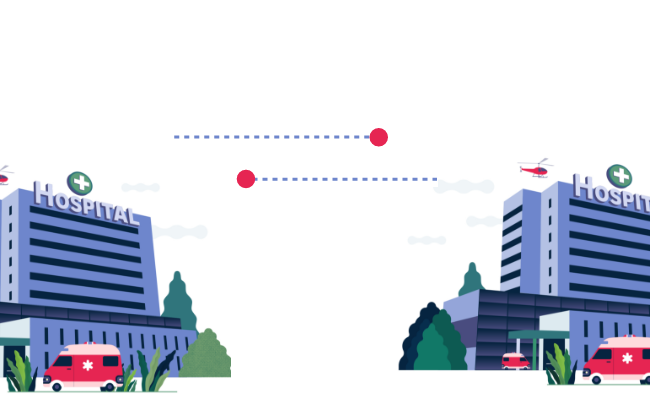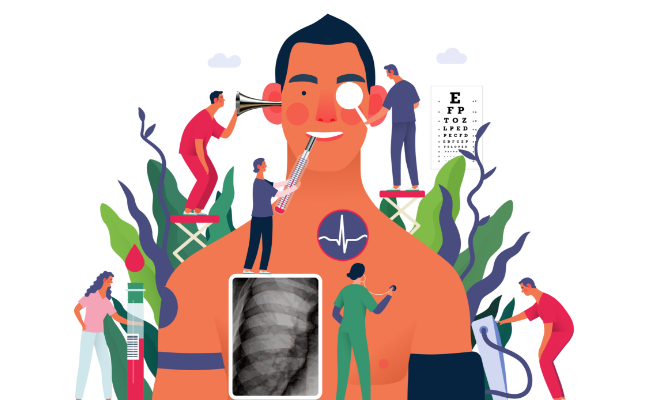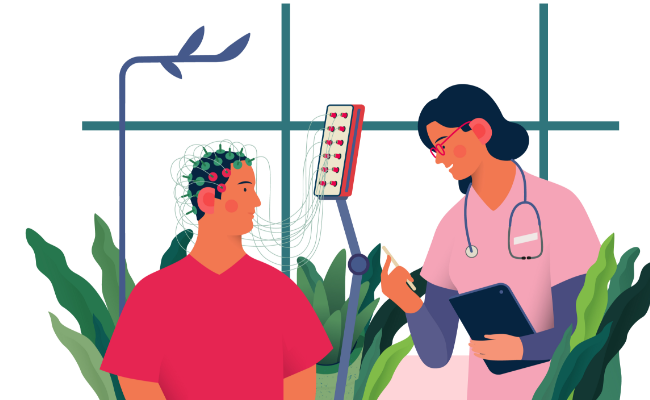The chronic care management program was virtually untouched by the 2021 Final Rule from CMS. There are three main CPT codes and two add-on CPT codes in 2021 that may be billed by primary care providers for CCM services.

Requirements for CCM:
Non-Complex CCM:
- Two or more chronic conditions expected to last at least 12 months (or until the death of the patient)
- Patient consent (verbal or signed)
- Personalized care plan in a certified EHR and a copy provided to the patient
- 24/7 patient access to a member of the care team for urgent needs
- Enhanced non-face-to-face communication between patient and care team
- Management of care transitions
- At least 20 minutes of clinical staff time per calendar month spent on non-face-to-face CCM services directed by a physician or other qualified healthcare professional
- CCM services provided by a physician or other qualified healthcare professional are reported using CPT code 99491 and require at least 30 minutes of personal time spent in care management activities
Complex CCM:
Shares common required service elements with CCM but has different requirements for:
- Amount of clinical staff service time provided (at least 60 minutes)
- The complexity of medical decision-making involved (moderate to high complexity)
CPT Reimbursement Codes for CCM Service:
Non-complex CCM:
- CPT Code 99490– This code requires that patients must have two or more chronic conditions, as well as documented consent to enroll in the program AND receive at least 20 minutes of CCM services from clinical staff within a given month. A personalized care plan, which shows an assessment of all patient factors and identifies gaps and barriers to be addressed, is also required. Reimbursement Rates – CPT Code 99490 – $42/patient/month.
- CPT Code 99439 (formerly G2058) -This code allows providers to bill for each additional 20 minutes spent for Basic CCM services in a given month, up to 2 times. For example, if CCM services were provided for at least 40 minutes with a patient in a given month that was not Complex, 99490 ($42) and 99439 ($38) would be billed together for that month. Reimbursement Rates – CPT Code 99439 (formerly G2058) – $38/patient/month.
Complex CCM:
- CPT code 99487– This code has a higher rate of reimbursement than the Basic CCM CPT code. To bill using this code requires moderate or high complexity in medical decision making AND acknowledgment by both patient & provider of an acute exacerbation (generally defined as a sudden worsening of a patient’s condition that necessitates additional time and resources). The patient must receive at least 60 minutes of services from clinical staff within a given month to bill for this code. Reimbursement Rates – CPT Code 99487 – $93/patient/month.
- CPT code 99489 – The same as with the Basic Chronic Care Management code, the Complex Chronic Care Management code also has an add-on CPT code to cover time spent beyond 60 minutes. It allows for billing for each additional 30 minutes spent for Complex CCM services within a given month. Reimbursement Rates – CPT Code 99489 – $45/patient/month.
Transitional Care Management (TCM) services address the hand-off period between the inpatient and community settings. After a hospitalization or other inpatient facility stay (e.g., in a skilled nursing facility), the patient may be dealing with a medical crisis, new diagnosis, or change in medication therapy. Family physicians often manage their patients’ transitional care.

Requirements for TCM:
- Contact the beneficiary or caregiver within two business days following a discharge. The contact may be via the telephone, email, or a face-to-face visit. Attempts to communicate should continue after the first two attempts in the required business days until successful.
- Conduct a follow-up visit within 7 or 14 days of discharge, depending on the complexity of medical decision-making involved. The face-to-face visit is part of the TCM service and should not be reported separately.
- Medicine reconciliation and management must be furnished no later than the date of the face-to-face visit.
- Obtain and review discharge information.
- Review the need for diagnostic tests/treatments and/or follow up on pending diagnostic tests/treatments.
- Educate the beneficiary, family member, caregiver, and/or guardian.
- Establish or reestablish referrals with community providers and services, if necessary.
- Assist in scheduling follow-up visits with providers and services, if necessary.
CPT Reimbursement Codes for TCM Service:
- CPT code 99495 – moderate medical complexity requiring a face-to-face visit within 14 days of discharge. Reimbursement rate – $175.76/patient/month.
- CPT code 99496 – high medical complexity requiring a face-to-face visit within seven days of discharge. Reimbursement rate – $237.11/patient/month.
Allowed reported services alongside TCM services include,
- Prolonged services without direct patient contact (99358-99359);
- Home and outpatient international normalized ratio (INR) monitoring (93792-93793);
- End-stage renal disease (ESRD) services for patients ages 20 years and older (90960-90962, 90966, or 90970);
- Interpretation of physiological data (99091); and
- Care plan oversight (G0181-G0182).
RPM involves the collection and analysis of patient physiologic data that are used to develop and manage a treatment plan related to a chronic and/or acute health illness or condition.

Requirements for RPM:
To qualify for CMS reimbursements for utilizing the RPM services efficiently, the service providers and hospitals need to ensure the following:
- Medicare part B patients are imposed 20% of copayment (renouncing the copayments regularly can trigger penalties under the Federal Civil Monetary Penalties Law and also the Anti-Kickback Statute)
- Patients must take the remote monitoring services and are required to monitor for a minimum of 16 days to be applicable for a billing period.
- The RPM services must be ordered by skilled physicians or other qualified healthcare experts.
- Data must be wirelessly synced for proper evaluation, analysis, and treatment.
CPT Reimbursement Codes for RPM Service:
- CPT code 99453 – It is a one-time practice expense reimbursing for the setup and patient education on RPM equipment. This code covers the initial setup of devices, training and education on the use of monitoring equipment, and any services needed to enroll the patient on-site. Reimbursement rate – $18.77/patient/month.
- CPT code 99454 – This code covers the supply and provisioning of devices used for RPM programs, and the code is billable only once in a 30-day billing period. Reimbursement rate – $64.44/patient/month.
- CPT code 99457 – This code covers the direct monthly expense for the remote monitoring of physiologic data as part of the patient’s treatment management services. To receive reimbursement, the physician, QHP or other clinical staff must provide RPM treatment management services for at least 20 minutes per month. Reimbursement rate – $51.61 (non-facility); $32.84 (facility) /patient/month.
- CPT code 99458 – This code is an add-on code for CPT Code 99457 and cannot be billed as a standalone code. This code can be utilized for each additional 20 minutes of remote monitoring and treatment management services provided. Reimbursement rate – $42.22 (non-facility); $32.84 (facility) /patient/month.
PCM codes are intended to cover services for patients with only one complex chronic condition that requires management by a specialist. Like other chronic care management (CCM) codes (chronic care management, transitional care management), the PCM codes are intended to reimburse physicians for the additional work they do to take care of high-risk, complex patients. This includes the extra time and work required for medication adjustments, creating a care plan, patient follow-up, and more.

Requirements for PCM:
- One complex chronic condition lasting at least 3 months, which is the focus of the care plan,
- The condition is of sufficient severity to place the patient at risk of hospitalization or has been the cause of recent hospitalization,
- The condition requires development or revision of a disease-specific care plan,
- The condition requires frequent adjustments in the medication regimen, and/or the management of the condition is unusually complex due to comorbidities
CPT Reimbursement Codes for PCM Service:
- CPT Code G2064 – requires 30 minutes of provider (allergist, NP, PA) time each calendar month to care for the patient. This code can be billed monthly (in addition to appropriate E/M codes) and approximate reimbursement is $52/patient/month.
- CPT Code G2065 – requires 30 minutes of clinical staff time directed by a provider each calendar month for patient care. Provider supervision does not require the provider to be onsite while clinical staff performs PCM services. This code can be billed monthly (in addition to appropriate E/M codes) and approximate reimbursement is $22/patient/month.
The Annual Wellness Visit (AWV) is a yearly appointment with your primary care provider (PCP) to create or update a personalized prevention plan. This plan may help prevent illness based on your current health and risk factors. Keep in mind that the AWV is not a head-to-toe physical.

Requirements for AWV:
For G0438 (initial visit),
- Billable for the first AWV only.
- Patients are eligible after the first 12 months of Medicare coverage.
- For services within the first 12 months, conduct the Initial Preventive Physical Exam (IPPE), also referred to as the Welcome to Medicare Visit (G0402).
- The patient must not have received an IPPE within the past 12 months.
- Administer a Health Risk Assessment (HRA) that includes, at a minimum: demographic data, self-assessment of health status, psychosocial and behavioral risks, and activities of daily living (ADLs), instrumental ADLs including but not limited to shopping, housekeeping, managing own medications, and handling finances.
- Establish the patient’s medical and family history.
- Establish a list of current physicians and providers that are regularly involved in the medical care of the patient.
- Obtain blood pressure, height, weight, body mass index or waist circumference, and other measurements, as deemed appropriate.
- Assess a patient’s cognitive function.
- Review risk factors for depression, including current or past experiences with depression or mood disorders.
- Review patient’s functional ability and safety based on direct observation, or the use of appropriate screening questions.
- Establish a written screening schedule for the individual, such as a checklist for the next 5 to 10 years based on appropriate recommendations.
- Establish a list of risk factors and conditions for primary, secondary, or tertiary intervention.
- Provide personalized health advice to the patient, as appropriate, including referrals to health education or preventive counseling services and programs.
- At the patient’s discretion, furnish advance care planning services.
For G0439 (subsequent visit),
- Billable for subsequent AWV.
- The patient cannot have had a prior AWV in the past 12 months.
- Update the HRA.
- Update the patient’s medical and family history.
- Update the current physicians and providers that are regularly involved in providing the medical care to the patient, as developed during the initial AWV.
- Obtain blood pressure, weight (or waist circumference, if appropriate), and other measurements, as deemed appropriate.
- Assess a patient’s cognitive function.
- Update the written screening schedule checklist established in the initial AWV.
- Update the list of risk factors and conditions for which primary, secondary, and tertiary interventions are recommended or underway.
- Provide personalized health advice to the patient, as appropriate, including referrals to health education or preventive counseling services and programs.
- At the patient’s discretion, the subsequent AWV may also include advance care planning services.
CPT Reimbursement Codes for AWV Service:
The four CPT codes used to report AWV services are,
- G0402 Initial Preventive Physical Exam – This code is used for patients visiting within 12 months after enrolling in Medicare.
- G0438 Initial Visit – This visit is eligible within 11 calendar months from the date of IPPE.
- G0439 Subsequent Visit – This code is used for every subsequent visit. Patients are eligible for this benefit every year after their Initial AWV.
- CPT 99497/99498 – Patients are eligible for an Advance Care Planning (ACP) at any time. But if performed during an AWV, the patient has no copay.
Integrating behavioral health care with primary care (“behavioral health integration” or “BHI”) is an effective strategy for improving outcomes for millions of Americans with behavioral health conditions. Medicare makes separate payments to physicians and non-physician practitioners for BHI services they furnish to beneficiaries over a calendar month service period.

Requirements for BHI:
- Any mental or behavioral health condition being treated by the billing practitioner, including substance use disorders, that, in the clinical judgment of the billing practitioner, warrants BHI services.
- The diagnosis or diagnoses could be either pre-existing or made by the billing practitioner and may be refined over time.
CPT Reimbursement Codes for BHI Service:
The CPT code used to report BHI services is,
- CPT Code 99494 – Initial or subsequent psychiatric collaborative care management, each additional 30 minutes in a calendar month of behavioral health care manager activities, in consultation with a psychiatric consultant, and directed by the treating physician or other qualified healthcare professional.
References:
https://signallamphealth.com/2021-medicare-cms-chronic-care-management-ccm-cpt-code-updates/
https://www.cms.gov/newsroom/fact-sheets/final-policy-payment-and-quality-provisions-changes-medicare-physician-fee-schedule-calendar-year-1
https://college.acaai.org/new-principal-care-management-cpt-codes/#:~:text=G2064%20requires%2030%20minutes%20of,is%20%2452%2Fpatient%2Fmonth
https://www.aafp.org/family-physician/practice-and-career/getting-paid/coding/transitional-care-management.htm
https://www.cms.gov/Outreach-and-Education/Medicare-Learning-Network-MLN/MLNProducts/Downloads/BehavioralHealthIntegration.pdf
